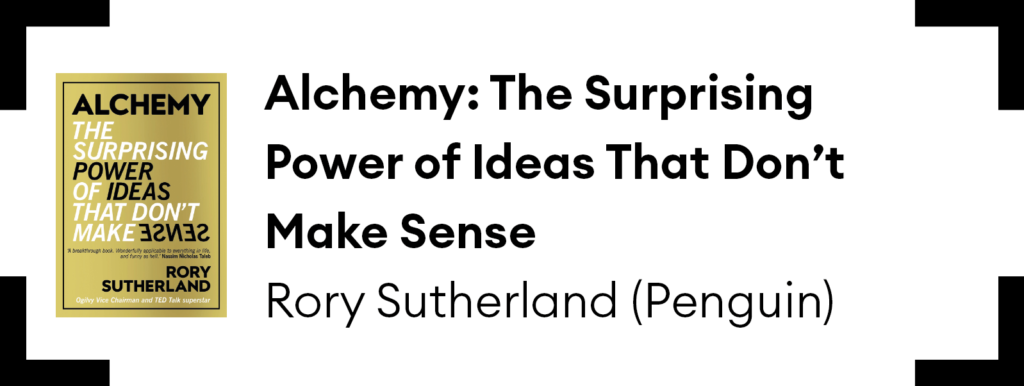To solve complex problems, leaders need the courage to explore solutions that look counter-intuitive or even irrational.
In some quarters, marketing and advertising have a rather dubious reputation. For many, these functions are a wasteful use of resources, run by a bunch of chancers and charlatans. And of course, some people resent the idea that they are being manipulated.
Unsurprisingly, Rory Sutherland, vice-chairman of Ogilvy UK, disagrees. He is author of Alchemy: The Surprising Power of Ideas That Don’t Make Sense, a clever and entertaining book that is based to some degree on science, but mainly on his practice and experience. His premise is that there are some things in our lives that work, but don’t make sense. The UK’s constitutional monarchy is one. Another is the humble bicycle. Its mechanics cannot be completely explained by science, writes Sutherland. But just because one cannot explain why something works, is not a good reason for failing to use it.
In business we favour rational, often numerically-based approaches to decision-making and problem-solving; we usually select our leaders based on this ability. For problems that require a rational approach, this works well. But what do you do about big problems that are left unsolved precisely because they are not readily addressed by a rational, logical approach?
It gets worse. If you do solve a problem by a method that does not appeal to the logical thinker, instead of being pleased, people just get annoyed.
In the 1720s, the clockmaker John Harrison solved the problem of calculating longitude at sea. Yet his solution, being devised by a mere craftsman, was regarded as insufficiently scientific – a sort of cheating. For years, he was denied the government’s prize for solving this crucial problem.
Today, if you defy rational thinking with a creative idea and it goes wrong, you are likely to lose your job. If it succeeds, you may earn only modest praise. Follow a conventional idea and you will be fast-tracked for promotion if it works – and simply considered unlucky if it fails. In organizations, it pays to be conventional. Sutherland’s point is that you mustn’t confuse what makes sense with what works. A lot of the time we don’t know why we do things. We often lie to ourselves about our motivations. Our ability for rational thought may have evolved so that we can retrospectively explain our actions to others, rather than as a means of making decisions.
Yet we have a powerful bias towards rational thinking. The pursuit of shareholder value with no regard for wider social and environmental considerations may be an example of the damage that an excessively rational approach can do. In this context, policymakers’ support for ESG measures may be seen as an attempt to mitigate the excesses of a narrow focus on shareholder value. But perhaps ESG is over-engineered and too reliant on rational thinking? Could there be a better way?
Sutherland’s call is for leaders to use ‘alchemy’: to consider (and yes, to test empirically) solutions that appear counter-intuitive or appeal to the unconscious. For example, if you have falling sales for a product, sometimes the right move is to increase the price, or remove a feature – neither of which are supported by classical economics. Many of these ‘off the wall’ approaches fail, but some will succeed.
Sutherland’s analysis is in many ways depressing. We could do with more creativity, not less, to solve the difficult problems facing the world. If you cycle to work, consider it a silent homage to the power of what works over what can be explained. And if you feel your employer is suppressing your best creative ideas, perhaps it is time for a change.
Piers Cain is a management consultant.


